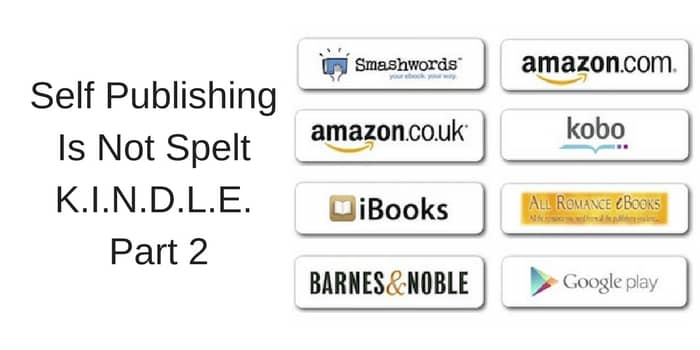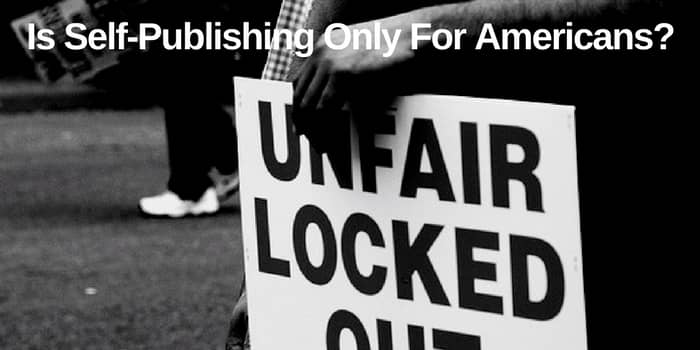 How to stack keywords on Amazon book reviews
How to stack keywords on Amazon book reviews
In a recent post about Amazon Reviews, I mentioned in one of my comments that I had come across what I believe is systematic keyword stacking in reviews posted by some major publishers. I was also convinced that the reviews posted for this particular book were systematic, highly orchestrated and were probably posted by members of the publisher’s staff, or perhaps by paid reviewers. I have quoted myself below to save you hunting the long list of comments that my earlier post on Amazon reviews received.
If there is any doubt about major publishers using fake reviews (um, marketing?), then one book I noticed this morning is a prime example. A book published in 2012 by HarperCollins has 79 reviews. The majority of these reviews contain either the author’s name or the book subject within the first six words. This is called ‘keyword stacking’ in SEO language and in my mind is clear proof of the publisher posting their own reviews.
Another aspect of the reviews for this book was that ALL of the initial reviews posted through the Amazon Vine Program, the so called ‘Trusted Reviewers’ system on the same day! When I looked at the dates of the first 4 pages of reviews, it was staggering how many were posted in one day. The day of the book’s release!
Honesty in advertising? No such thing.
At first, I was hesitant in posting details of this particular book, but I believe it is important to know what is going on with regard to Amazon Reviews and how they are manipulated. If you believe most reviews are posted on Amazon by caring and generous readers, you probably still believe in the tooth fairy.
So to the reviews of this particular book. There are three keywords associated with this book. One is the author’s name and the other two are key to the subject of the book. These three words are, Grippando, Madoff and Ponzi. In chronological order, here are the first few words of a selection of the reviews posted for this book during pre-release and on and just after its release on January 3rd 2012.
Author Grippando is the author of the Jack Swyteck series, ….
James Grippando is an author i’ve been reading for years…..
This is the first novel of Grippando I have read, but it won’t be the last…..
This is a thriller based upon a Ponzi scheme of the Madoff variety….
James Grippando is one of those writers who can hold your interest…
Grippando’s stories share a common thread in that …..
Of the four books by James Grippando that I’ve read, …..
I suppose that at least one positive thing that can be said about Bernie Madoff is that he inspired James Grippando…
Good grief. James Grippando’s novel is bulging with every character ….
This is the first time I have read James Grippando….
If you, too, followed the stories over the past years of the Bernie Madoff Ponzi scheme….
This is the first book that I’ve read that has woven in Bernard Madoff’s $60 billion Ponzi scheme ….
The usually dependable Grippando goes off course with this one …
Another gold star in my book! Grippando creates a web of twists & turns …
James Grippando starts this one out with a bang….
As always when i pick up a Grippando book its like going to the fair…
This book is really great. Another one from Mr. Grippando that does not disappoint! …
James Grippando has taken a Madoff-like Ponzi scheme as his foundation…
Having read most of Mr. Grippando’s suspense novels, I can say fairly…
What if the U.S. government knew that Bernard Madoff was running a Ponzi scheme …
The Bernie Madoff Ponzi scheme has influenced this novel….
Like a modern day Rumpelstiltskin, Grippando weaves a superb yarn turning ….
New York Times bestselling novelist James Grippando served as counsel for a law firm ….
From the first paragraph, I was hooked on another Grippando novel…..
Need to Know is one of the best of James Grippando’s books. ….
I appreciated the plot of this book – a take off on the Madoff Ponzi scheme,….
I have just finished the latest novel by James Grippando. It is a fast read…
As everyone says it’s a Ponzi scheme story. ….
“Need You Now” is now my favorite Grippando book which surprised me….
I am a long time James Grippando fan. He is one of a short list of authors…..
I think I’ll stop about here before I make myself sick with repetition. Most of these reviews were posted via the ‘Amazon Vine’ program, and in waves that coincided with the pre-release and then release of the book in January of this year. So if you are concerned about having friends and family posting reviews of your book, or even paying for reviews, don’t feel too guilty about it as it seems to me to be a common practice by major publishers. Just remember that the example above is not cheating, it is called effective marketing.
For the majority of self-publishing authors, I think there is still a lot to learn about promoting and marketing books and about what is fair, and what is unfair. One thing is for sure, though, it’s a very rough and tough business.




This is common practice. Every website does it and anyone who has hired a promotional company will have that. It is purported to give an advantage with the search engines but in fact does not. In fact some search engines will not list search results if it appears it is being spammed. I have worked writing copy for SEC companies and know that stacking keywords worked at one time but no more.
Really Rick, I think the keyword issue is in a sense quite minor here. But what it does show is a systematic posting of reviews that are from, well let’s say, a very, very similar source. This instance makes a mockery of Amazon book reviews.
I agree Derek this looks to be the work of some promotional firm or SEC optimizing website. Maybe even the author himself.
Read this post with interest and disgust. I’m fairly new to self-publishing and still idealistic. I have the glow of optimism. Write a great book, get “real” reviews, generate buzz, sales will follow. But wow! To compete with systematic and automated marketing machines that play the system, do you have to play the sordid game? It feels unethical and wrong, but how else to succeed?
The result is an ecosystem filled with questionable content, authenticity in doubt at every turn. A noisy environment where everyone loses, writers and readers alike.
When I step back, I’m not surprised. It’s human nature. We are competitive and slippery beasts. As you say, Derek, it’s a rough and tough business. I’m learning.
I think this is another example of people who are unable to put 2+2 together and come up with the right answer. Reviews all posted on the same day or relatively the same day mean they’re ‘fake’? Reviews which all mention the author’s name or keywords must also be fake?
Hmmm…let’s see how marketing for major publishers and self-publishers actually work, shall we and see if legitimate marketing looks the same as ‘fake marketing’
Both big publishers, small publishers and self-publishers look for influential reviewers, esp Vine Voice reviewers to review their books.
Big publishers especially have major publicity campaigns that send books to reviewers BEFORE the release date of the book. Ever heard of ARC copies. What the hell do you think Advanced Review Copies are?
The normal PW reviews don’t even review books unless they haven’t been released yet.
So…is it surprising that a whole bunch of reviews are posted the same or near the same date the book is published? They can hardly post the review before the book appears, can they? But they most likely already have the review ready by the time of publishing because they were sent ARCs.
And unlike friends and family, they are objective reviewers. That is how they become Vine Voice reviewers. The likelihood that they will post a bad review is as good as posting a good one.
I’ve never read such crap as I have the last few months since it became so easy to self-pub. There are a handful of good ones but the bad ones far outnumber the good ones. The last time I had that reaction to a book by a major publisher was so long ago, I don’t remember. Why? Because publishers know quality and develop quality. Self-pubs all personally think they’re good, along with their family and friends, making them really objective. Uh-huh.
Then how is it possible that all these people post such good reviews for that book? Um… quality?
And pointing out that all those reviewers must be fake because they know how to use keywords?
Isn’t it far more likely that experienced reviewers know how to write a review so that the writers can benefit even more and they do this regardless of whether it is a major publisher, small publisher or a self-publisher?
Major publishers have the know-how and resources of lists of reviewers who matter, including Vine Voice ones. They can afford to send free ARC copies of books out to a vast array of reviewers even before the book is published. That is not a sign of ‘fake’ marketing but good marketing which is one of the values of having a publisher in the first place, not some sign of a conspiracy.
Try sending books to a Vine Voice reviewer. They accept books from anyone and will give objective reviews and ones targeted to give you better exposure, assuming they like your book of course.
I can’t believe people try to demonize the system of good marketing as some conspiracy. Paranoia gone rampant or jealousy?
As you said Elizabeth, ‘Major publishers have the know-how and resources of lists of reviewers who matter.’
But I think this was my point.
Do these reviewers ‘who matter’ really post their reviews out of the kindness of their heart?
And by the way, my arithmetic isn’t that bad and nor are my manners. ‘Crap’ is not a word I would use to describe the hard work of any author, no matter how they are published.
It’s kind of interesting how quickly a comment about keyword stacking turned into a diatribe about self-publishers. Talk about “demonizing!”
I have to agree Catana. There are still a few literary snobs out there who seem to be riding a very old and tired train of prejudice. The world has changed.
An interesting post, but I didn’t feel that you many examples were anything other than ‘professional’ reviews that know how to start off. I was also interested in Elizabeth Lang’s explanation of the marketing process. I think many indie authors (including myself) have much to learn about the marketing process. We need to be professional about it, as we do with our book presentation and its content.
I hope Vine Voice reviewers accept ebooks and not just hard copy. I must try them. Thank you.
You hit the nail on the head Jemima when you described these as ‘professional’ reviews. Would you equate professional with being paid? As with any other professional service we pay for such as book covers, editing and proofreading? And now should we also pay for reviews?
I prefer the phrase ‘semi-professional reviews’, which includes things like Amazon Vine, but does not include payment.
Note that Amazon does not permit paid reviews in the Customer Reviews section – the author/publisher can quote from paid reviews only in the Product Description.
So, no, you shouldn’t pay for reviews. But you might need to pay for access the reviewing programme (e.g. Vine, NetGalley, Edelweiss, BookCrash, Booksneeze).
Raerrr [that’s my cat fight noise]. As usual Derek you handled it with candor and courage.
Candor and courage Janna? Oh how I love beautiful alliterations! :)
I am a Vine Voice. I choose free books (yes, actual books) from a list sent to me by Amazon twice a month. I am allowed up to 4 books a month and in return I have to review 80% of the books I choose. I always give an honest opinion. I’ve given five stars down to one star but, by the law of average, as I choose books that are more likely to be to my taste, my reviews tend to have high star ratings – but not always. So how was I chosen? I don’t know but I guess it’s because I buy a lot of books from Amazon (I don’t just stick to the free ones) and I like to think I write perceptive reviews. How do some books end up on Amazon’s list?. Because the publishers pay for the privilege. That’s why. I’m not naive. That’s the marketing side of things. However, as I said, I always am honest in my reviews. (I was once contacted by a top newspaper for an article because I gave a damning review of the novel that was generally selling well.)
It is not possible for an author to contact a Vine reviewer – unless you happen to know them well enough to send them a book and ask them nicely to publish a review on Amazon. (That has never happened to me, by the way.).
To sum up: the way books get on to Amazon’s Vine Programme is down to marketing but the actual reviews are written by genuine individuals. I know.
Thank you so much for your informative comment Sally. Now you really have me intrigued though. When you say it’s not possible for an individual author to contact a Vine reviewer, how is it possible that so many Vine Voices reviews are published for the major publishers? Especially prior to, and just at the time of release?
So, let’s all write reviews for each other.
Very interesting blog post. And a bit depressing.
I have to at least partially disagree with your theory of keyword stacking on Amazon. While I do agree that all those reviews showing up on the release date of a book is a clear-cut sign that there’s a skunk in the woodpile (as my Dad would have said), I do not agree with your assumption that just because a review contains the author’s name or book subject within the first few words is a sign of a publisher-posted review.
I may be in my 50’s, but I can remember back to my literature classes in high school. We often had to write essays, and I clearly recall the teacher telling us that it is a good policy to state your objective in the first sentence of a written piece. If you think about it, this makes sense. Many things nowdays do not make sense, but have methods for writing changed so much that using a common-sense approach is now deemed subversive?
Now, I am a reader. I am not a writer (possibly because I was forced to write those essays in high school), and I am certainly NOT a publisher – but my reviews almost exclusively have the author’s name, book title and often book subject within the first sentence. For me, this is not keyword stacking. This is simply a way to get the review started. Because I am not a writer, I have a difficult time beginning any written document, be it a review, and email, or a simple letter to a friend. If, based upon your so-called “keyword stacking” theory, you’re going to condemn people who remember their lessons and leave legitimate reviews, then I guess I won’t bother to leave any – especially not for anything you’ve written!
By the way, please note the first sentence in this comment… Gee, did I keyword-stack here too? Well then, I guess this comment doesn’t count.